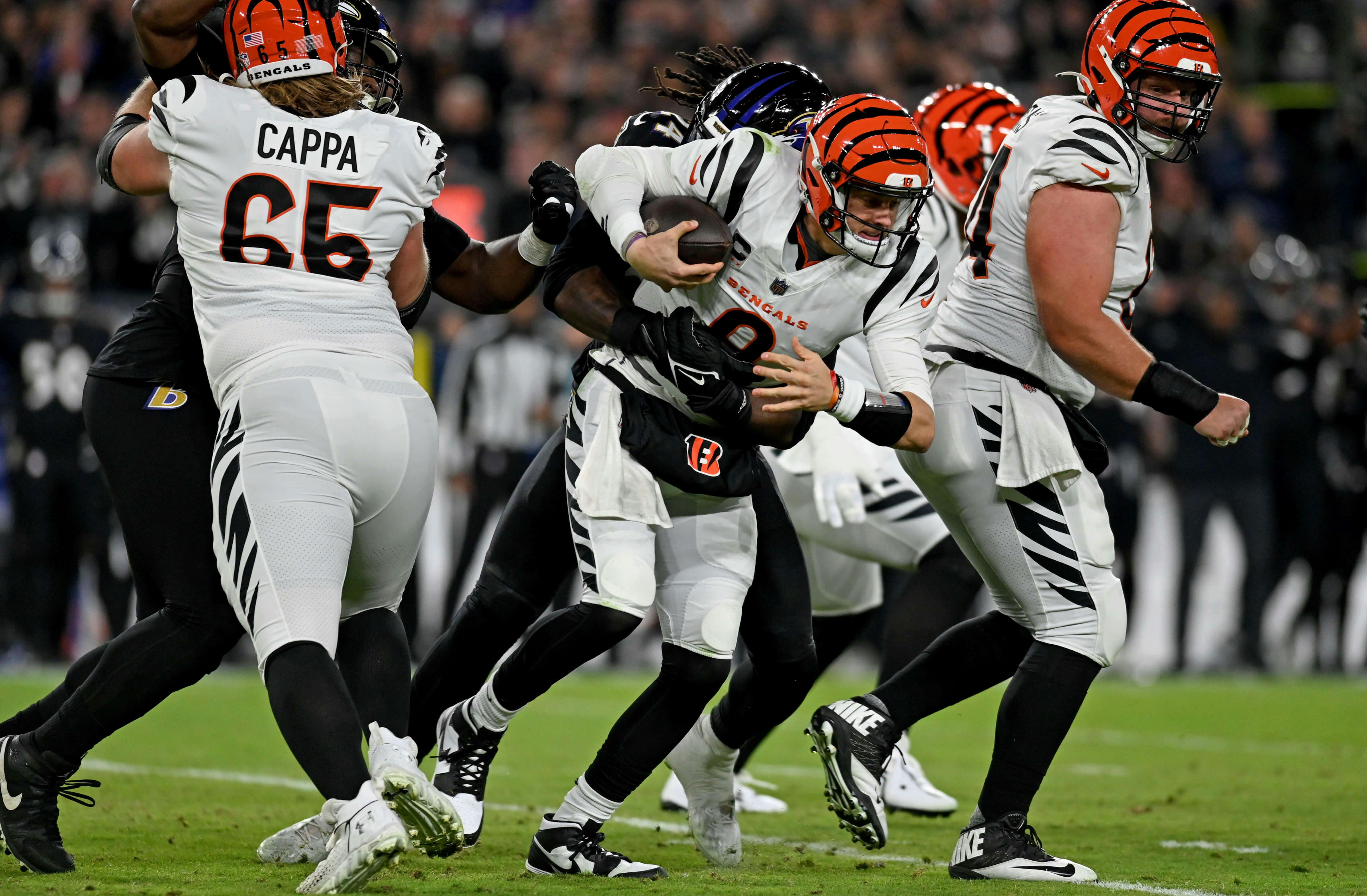Transparency was the topic du jour Wednesday at the kick-off to the National Council of Legislators from Gaming States winter meeting in Fort Lauderdale, Florida.
More than 100 legislators and regulators from across the United States are expected to attend the four-day conference where hot-button sports betting topics will be discussed. On the agenda, Wednesday was an injury to a high-profile athlete that was shrouded in controversy back in November.
Cincinnati Bengals quarterback Joe Burrow left a nationally televised football game against the Baltimore Ravens on Nov. 16 with a wrist injury.
While it was believed that the injury was sustained mid-game, Burrow was spotted in a since-deleted Instagram post entering the stadium wearing a soft cast on his right wrist. It led to public speculation that Burrow had a pre-existing injury that wasn’t listed on the Bengals’ injury report.
Lots of talk about a deleted #Bengals post, which showed Joe Burrow wearing some type of brace or sleeve on his right wrist.
— Caleb Noe (@CalebNoeTV) November 16, 2023
🎥 Here’s video of Burrow getting off the team bus in Baltimore.
Not a perfectly clear shot, but you can definitely see it on his hand.@WCPO pic.twitter.com/XcqX6oMODA
The absence of any suggestion that Burrow was nursing an injury to his throwing arm drew the ire of sports bettors, particularly Barstool founder Dave Portnoy, who threatened to sue the NFL for not disclosing such information before the game.
Portnoy claimed to have put more than $100,000 on the Bengals to cover the spread of +4.
I'm filing a class action lawsuit against the Bengals and NFL for lying about the injury report. There is no shot I put 100k hard earned dollars on the Bengals if I knew Joe Burrow was injured going into the game. This committee owes me an apology!
— Dave Portnoy (@stoolpresidente) November 17, 2023
Burrow would undergo surgery for a torn ligament in his right wrist in the following days, signaling the end of his season.
But the discussion on the disclosure – or concealment, depending on how you look at it – of the injury continues.
“This is an extremely tricky one because of, at least in the U.S., federal medical privacy laws,” said Ed Martin, president of the Sports Betting Regulators Association.
“It raises the question of whether there are athletes who are competing under therapeutic-use exemptions and whether or not there should be some transparency of that. … Or if somebody gets treated mid-game, does the betting public, because of the in-game wagers that are being allowed, should the betting public have some level of disclosure of what it was that treatment was?”
What about college sports?
The NFL investigated the matter and determined that the Bengals did not violate the league’s injury report policy. The presence of such a policy at the pro level led the sports betting regulators to shift their attention to collegiate sports.
While major leagues have policies that they adhere to with requirements for providing information to the general public on whether an athlete is playing, out, or injured, there isn’t a similar reporting system in college sports. Regulators believe there may need to be.
“I’m not so sure we can mandate it on our end, but I think certainly the college athletic leagues are smart enough to see there’s concerns being raised with how inside information on a person’s condition is shared and then what happens to that information by the people who have it on their campus,” said David Rebuck, director of New Jersey’s Division of Gaming Enforcement.
“I think we as a group can say that, yes, we see this as a potential problem, but I don’t know how we can direct them to address it in a way that they’re going to have to make significant changes in their operations.”
While the pro sports leagues can implement policies for their 30-to-32 teams, there are hundreds and hundreds of Division 1 athletes.
And then, do you stop at injury reporting? What about player availability overall?
Take, for example, the ReliaQuest Bowl between Wisconsin and LSU on New Year’s Day. LSU receiver Malik Nabers played in the game despite being a top draft prospect. He entered the game needing 22 yards to break a school receiving record. Nabers reached 23 yards and sat out the second half of the game.
The injury and playing status of any star player has a significant impact on betting lines. Regulators want to avoid any perception that there is something untoward in sports and how they are played.
“I do believe that over time, (the NCAA will) probably have to take a look at that and see if they want to emulate what is done at the pro level,” Rebuck told Covers. “But it’s not our position to dictate to them that they have to do it, because that’s not our role.




















